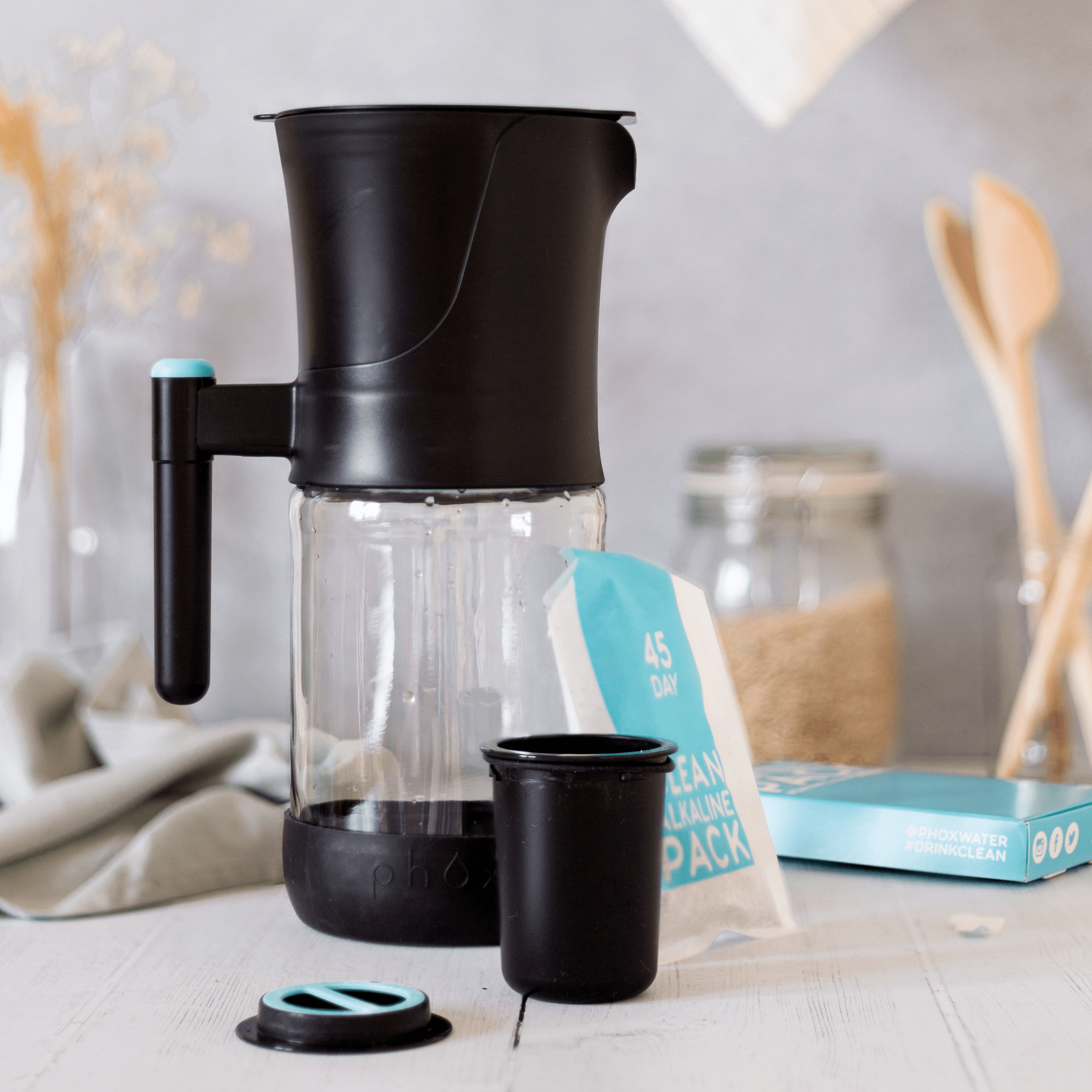5 Reasons Why You're Always Dehydrated
Did you know that 1 in 10 GP visits where 'I just feel tired all the time' is the complaint, that dehydration is actually the patient's problem?
When was the last time you reached for a drink in a desperate attempt to quench your thirst and rehydrate you? In the midst of a busy day keeping your body hydrated can often slide way down the to-do list. However, busy living conditions mean optimum hydration is absolutely imperative to function at your best level.
Here are 5 things that may be part of your daily routine which are contributing towards dehydration:
- Caffeine
Coffee is the world's most popular psychoactive stimulant but if you're dependant on numerous cups per day, it could be inhibiting your hydration levels.
Coffee's reputation as a diuretic stems from Eddy & Downs (1928) influential study which found that participants excreted 50% more urine when they consumed caffeinated water or coffee.
However, this has been extensively studied in recent decades and despite the fact that coffee does tend to have you running to the toilet a little more often than usual, there is generally still a net fluid gain from consumption.
If you're having upwards of 2-3 cups per day though, it is likely that coffee consumption maybe impinging on your body's hydration.
RELATED: 5 Effects of Not Drinking Enough Water
- Soda & Juice
How often as a kid did you gulp down your favourite soda or fizzy juice when you needed to quench your thirst?
And do you still do it today?
Despite the initial feeling that these drinks may be quenching your thirst, the transitory satisfaction is probably not adequately hydrating your body.
It is well known that these drinks have high sugar contents but their 'diet' equivalents are also full of sweeteners and substitutes which do not aid hydration.
Combined with the caffeine content, fizzy drinks are far from the ideal fluid to consume if we want to achieve optimum hydration.
As your body cannot use these drinks as well as it can use water, it is very easy to become just 1-2% dehydrated. While this is a very subtle level of dehydration, it can lead to drops in cognitive function, mood and vigour.
- Alcohol
Perhaps the most obvious factor of them all, the alcohol we all enjoy to celebrate and party with is a huge diuretic.
After that first trip to the toilet when drinking alcohol, the gaps between subsequent visits get shorter and shorter. Alcohol causes significant decreases in our anti-diuretic hormone which restricts the kidneys' ability to absorb water and instead sends more fluid to our bladders.
So, whether you've had a heavy weekend on the booze or just had those couple of glasses of wine after work, it's so important to rehydrate as your body has a massive fluid deficit to make up for.
- Exercise
If you're not adequately hydrated before, during and after your workout, your body will struggle to reap the benefits of your efforts in the gym.
During exercise we often lose more water through sweat than we take on board, therefore creating a net fluid deficit. It is estimated that losing 2% of your body weight in water can decrease your performance by 25%.
The volume of water loss obviously depends on the length and intensity of the exercise, however the general guideline during your workout is to drink around 8oz per 15 minutes of exercise.
The best way to avoid dehydration during your workout though is to maintain a healthy level of hydration throughout the day.
- Inadequate Water Intake
Yes, the key to adequate hydration is not easy, but it is simple. The best way to hydrate your body is to drink at least 2 litres of water per day.
As we've already established though, this can sometimes seem like a chore during a busy day but it is a simple habit to integrate into your daily routine and your body will thank you for it.
Ensuring this daily intake could mean buying numerous bottles each day or carrying a rather large 1-2L bottle around with you on your daily commute. - both of which carry a huge environmental downside! However, there are solutions that can make integrating this level of intake into your routine a seamless change.
RELATED: 12 Astonishing Statistics that Highlight the Environmental Dangers of Bottled Water


